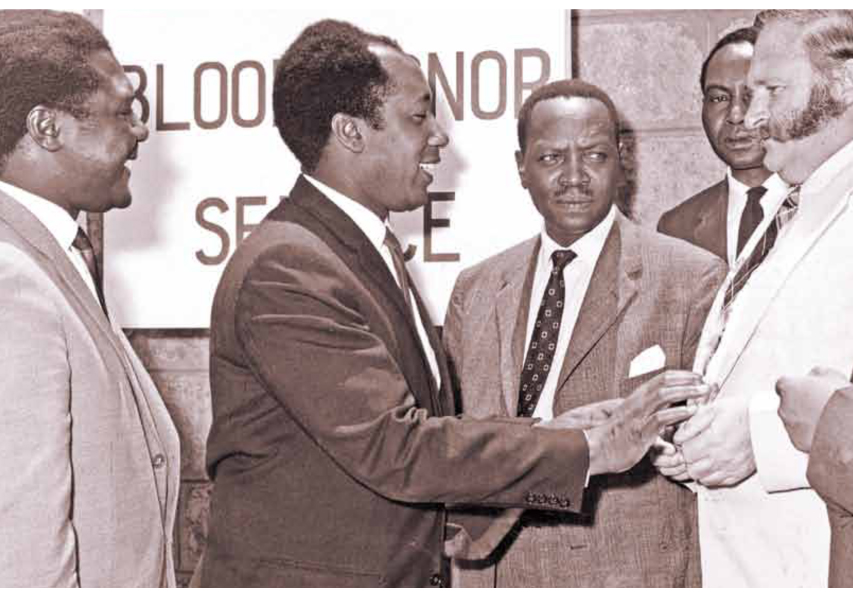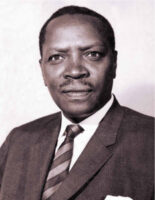
Born in 1914 to pioneer Christians Samuel Gitau and Mariam Nyaguthii, James Samuel Gichuru was the first of nine children. His 90-year-old sister Hannah Wanjiku says that at a young age, Gichuru led a life different from boys his age, mostly because his parents were religious and put education ahead of traditional cultural activities.
“While tradition dictated that boys look after livestock, my parents, who were among the very first Christians in Thogoto, Kikuyu, insisted that Gichuru and my brothers and sisters attend school instead. Gichuru was a very obedient young man,” Wanjiku recalls.
Because of the relationship between his parents and missionaries, the man, who went on to become the first president of the Kenya African National Union (Kanu), went to school at the Church of Scotland Mission School, Kikuyu at five. He completed primary education and went to Alliance High School and completed secondary education at 16.
Gichuru proceeded for Makerere College for a diploma in teaching. He returned to teach at Alliance, whose teaching staff was then exclusively white, between 1935 and 1940. He was then the headmaster of Church of Scotland School at Dagoretti. The other pioneer African teacher at Alliance was J.D. Otiende, who became a minister in the first independent Cabinet.
“Gichuru was head-hunted to encourage more Africans to take up studies at the school,” his sister recalled. His students included Charles Njonjo and Njoroge Mungai’s brothers Nyoike and Ng’ethe.
Gichuru’s freedom credentials emerged at Alliance, where he fought against discrimination, protests that provided a fertile ground for his political career.
His first protest was against a rule that African teachers wear shorts similar to students’ uniform, while their white counterparts wore long trousers. His sister Wanjiku says this was the main reason for his transfer to Kikuyu Secondary School, where Kikuyu Day Secondary stands today. But at Alliance, he married Rahab Wambui Ndatha in 1936 and they had two children. She has since died.
Wanjiru reports: “Alliance was a white man’s island and the Africans who worked there copied their habits and acted like Europeans. Gichuru was no exception and his first and second-born children were never carried on their mother’s back. Instead, they were pushed around in a pram, like European children. But Gichuru soon interacted with other educated Africans, especially those involved in the struggle for freedom. As a teacher, he encouraged his students to read newspapers and follow the progress of the struggle.”
Gichuru got involved in active politics in 1940 and travelled long distances on his bicycle to meet other leaders. He was elected the first president of the Kenya African Union (KAU) in 1944, but vacated the seat for Jomo Kenyatta when he came back from Britain in 1946.
